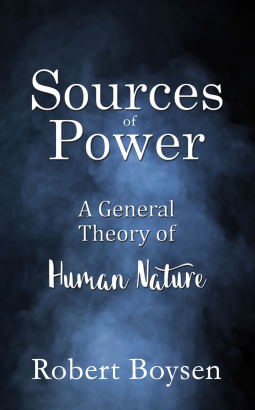
Sources of Power
by Robert Boysen
This title was previously available on NetGalley and is now archived.
Send NetGalley books directly to your Kindle or Kindle app
1
To read on a Kindle or Kindle app, please add kindle@netgalley.com as an approved email address to receive files in your Amazon account. Click here for step-by-step instructions.
2
Also find your Kindle email address within your Amazon account, and enter it here.
Pub Date Oct 07 2016 | Archive Date Dec 31 2016
Description
A general theory of human nature, charting basic drives to action choices. Answers why we do what we do. Defines the role of culture, denies rational thinking role, and the definition of a rational decision to act.
Bob had a 35-year career as a research scientist, research manager, and business manager in a Fortune 100 company. His business travels in the field of technology licensing and sales took him to 24 countries. During his career, he was awarded eight patents and published ten technical articles.
Bob’s physically-oriented hobby pursuits included sailing, bicycling, white water canoeing, flying, and hiking. People management experience and broad culture exposure continued to be enhanced via his development of small group bicycle tours and charter sail cruises. The former included 55 group bicycle tours in 28 countries totaling 28,000 miles. The latter included skippering 27 charters for a total of 180 days in 13 countries;
Bob has spent much of his time since his retirement in volunteer people-management positions with three non-profit organizations in the fields of bicycling, hiking, and business management. He has also created and published several bicycling maps, and a trail guidebook of the Kittatinny Mountains, as well as designing and building three private homes.
Keywords: Human Nature, Basic Drives, Actions, Theory, Power, Beliefs, Societies, Knowledge, Rationality, Ethics
A Note From the Publisher
Keywords: Human Nature, Basic Drives, Actions, Theory, Power, Beliefs, Societies, Knowledge, Rationality, Ethics
Marketing Plan
EBK, PBK
Available Editions
| EDITION | Ebook |
| ISBN | 9781506903217 |
| PRICE | $4.99 (USD) |



